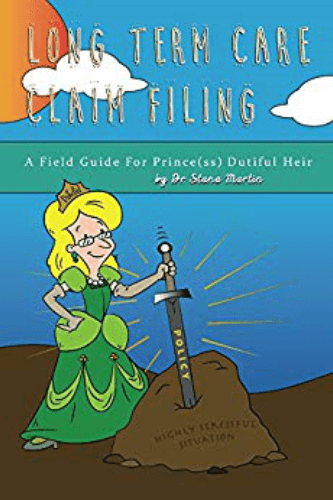As the old saying goes, “you can’t avoid taxes.” You can, however, be smart about your deductions and mechanisms for paying premiums that help you mitigate your tax burden.

Here are a few ideas:
1) Pay the premiums from a Health Savings Account. Long term care premiums are one of the few insurance premiums you are allowed to pay from your HSA account. Since the money in the HSA was untaxed, you are basically saving your tax rate (usually between 15% to 30%) on your premium by not paying the taxes on the money first. However, we always suggest you check with your tax advisor about this first. Some types of policies (hybrid life/long-term-care products) are more complex and may not be fully paid from an HSA. Also note that Cafeteria Plans (also called Section 125 Plans) operate under different laws and you can not use this money to pay long term care premiums.
2) Premiums may be deductible. Again, check with your tax advisor, but some states have line item deductions or available for residents who pay long term care premiums. Further, if you itemize expenses and your health/medical expenses are more than the threshold mandated by law (currently 7.5% of income), your long term care premium can be counted as a medical expense and used as deduction on federal tax filings. There are, however, limits on the amount you can use banded by age.
3) Employer Paid premiums will have a wide variation in treatment. A C-Corp, for instance, can write the premiums off as an expense and it will not roll thru to the employee. Self-employed, LLCs, sole proprietorship and S-corps can have a wide variation in the tax advantages of paying thru your company rather than from personal monies for long term care policies. There is usually at least some small advantage, though. So it is worth asking your tax advisor how best to pay your premiums to maximize your tax shelter.
When you use a long term care policy and it pays for care, the benefits may or may not be taxable. If you are using a “tax-qualified” long term care policy (also called a 7702B policy under the tax code), the benefits paid for care are not taxable as income down the years. A “non tax-qualified” policy (also called a 101g policy under tax code) could be taxable. However, this is a grey area as often the actual cost of care will off-set the benefits paid when you finally file. So here, again, a well qualified tax advisor is worth their professional fee.
There are other ways in which a long term care policy might help you mitigate taxes. For instance, we recently helped a lady roll an existing annuity – one that had significant gains and thus significant taxes attached to it if annuitized – into a tax-qualified long term care annuity with a 1035 exchange. The value of the old annuity “rolled” to the new one with no tax-consequences. When she uses this policy to pay for care, the benefits will be tax-free.
So, in short, your long term care policy and its associated premiums could help you mitigate your tax burden. But since the area of taxes is byzantine, you are wise to have a very knowledgeable insurance agent working with a well qualified tax advisor. Between them, they can help you figure out the best way to own a long term care policy and also mitigate your tax burden.
Stana Martin, PhD, founded Mrs LTC to provide a top-quality resource for clients and customers who need help with long term care claims or insurance comparisons.
Questions?
Contact - Mrs. LTC
Long Term Care Claims & Insurance
Question about a Claim?
Shopping for coverage?







